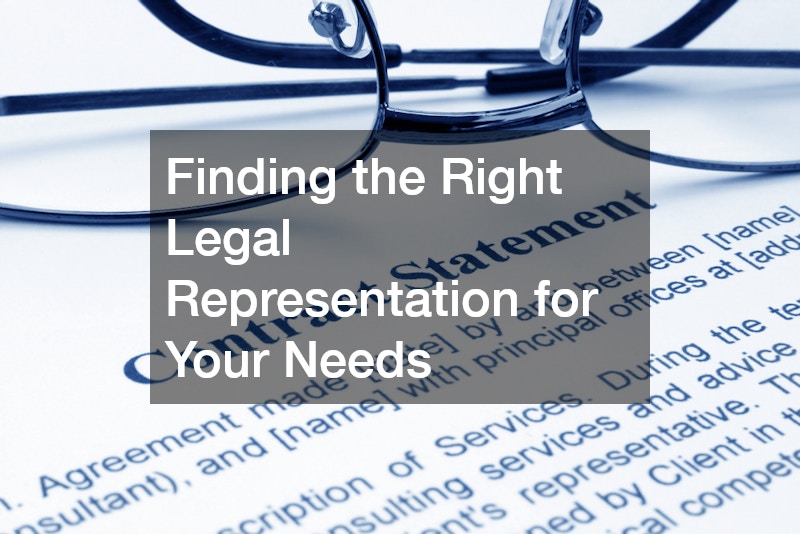Facing legal challenges can be overwhelming, whether you’re dealing with personal injury, employment disputes, criminal allegations, real estate issues, probate matters, or family law concerns. Many people hesitate to reach out for legal help because they’re unsure of the process or fear making a mistake. Understanding when and how to seek professional legal assistance is crucial for protecting your rights, your finances, and your peace of mind.
Even if your situation seems straightforward, laws are often complex, and small errors can have lasting consequences. For example, missing a filing deadline in a probate case or misunderstanding your rights during a workplace dispute can lead to significant setbacks. Similarly, criminal cases carry high stakes that require immediate attention and professional guidance. Knowing the proper steps to take before contacting a lawyer can make the process smoother and help you feel more in control.
Many people also face emotional and logistical stress during legal challenges. From navigating personal disputes to handling financial or property matters, having clear guidance is essential. Legal professionals can not only offer expert advice but also help streamline complex processes, saving time, money, and stress. Whether it’s scheduling appointments, preparing documentation, or understanding procedural rules, professional guidance ensures your case is handled correctly.
In addition to understanding your legal rights, it’s important to know how to communicate effectively with attorneys. Preparing relevant documents, outlining key questions, and clearly describing your situation can make your initial consultation more productive. Awareness of your legal options can prevent unnecessary delays and provide peace of mind, knowing that you have a plan to address your concerns.
This article is designed to provide a comprehensive overview of different legal scenarios and the professionals you should contact in each case. It will also explain practical steps and tips on how to call a lawyer effectively so you can get the help you need quickly and confidently. From workplace injuries and employment disputes to criminal defense, real estate matters, probate, and divorce, this guide will help you understand which legal expert is right for your situation and how to approach them. With careful planning and informed decisions, you can navigate legal challenges with confidence and ensure your rights are fully protected.
Understanding Workplace Injuries

If you’ve been injured on the job, it’s essential to understand your options for compensation and recovery. Workplace injuries can range from minor strains to severe, life-altering accidents. Workers’ compensation laws exist to protect employees, but navigating the system without professional guidance can be challenging. Consulting a workers comp lawyer ensures your claim is handled correctly from start to finish. They can help gather medical records, complete forms accurately, and advocate on your behalf with insurance companies or employers.
Physical therapists often play a critical role in recovery after workplace injuries. Proper rehabilitation is not only essential for regaining mobility and reducing pain but also for documenting ongoing treatment that can impact your compensation claim. Your attorney can coordinate with healthcare providers to ensure that all treatments and medical documentation are properly included. Understanding the combination of legal and medical support gives you a stronger foundation for recovering both physically and financially. In many cases, early engagement with physical therapists can also help identify long-term impacts of the injury, ensuring that future complications are addressed in your workers’ compensation claim. Clear communication between your healthcare team and attorney can strengthen your case and provide documented proof of your recovery process.
Workers’ compensation claims sometimes involve disputes over eligibility or payment amounts. Early intervention by a skilled attorney can prevent these disputes from escalating into prolonged legal battles. Knowing how to call a lawyer when an injury occurs allows you to begin the claims process promptly and avoid potential pitfalls. This proactive approach ensures you get the medical care, rehabilitation, and financial support you need without unnecessary delays. Additionally, attorneys can advise on vocational rehabilitation or workplace accommodations if your injury affects your ability to return to your previous role, helping you navigate both medical and employment challenges effectively.
Navigating Employment Disputes Effectively
Employment disputes can arise from wrongful termination, harassment, discrimination, retaliation, or contract violations. Early consultation with an employment lawyer can clarify your rights and prevent situations from worsening. Attorneys can review employment contracts, investigate claims, and negotiate settlements when appropriate.
Employees often underestimate the complexity of labor laws, which vary by state and sometimes even by city. A lawyer familiar with these regulations can identify violations and protect your rights. Understanding the remedies available, such as compensation, reinstatement, or policy changes, helps you make informed decisions. Knowing how to call a lawyer in employment matters ensures timely intervention and increases your chances of a favorable resolution.
Many employment disputes are resolved through mediation or negotiation, avoiding lengthy court proceedings. An attorney can guide you through these alternatives, preparing you with the necessary documentation and representation to achieve the best outcome. Their expertise ensures your claims are supported by evidence, strengthening your position and reducing stress during the process. Employment lawyers can also provide ongoing advice to prevent future disputes and ensure workplace compliance with evolving labor laws, giving employees a proactive approach to safeguarding their rights.
Defending Your Rights in Criminal Cases

Facing criminal charges is stressful and often intimidating. Whether the case involves misdemeanors, felonies, or complex white-collar crimes, engaging a criminal lawyer promptly is critical to protecting your rights and building a defense. They will explain the charges, outline potential outcomes, and represent you in court proceedings.
Criminal defense attorneys have specialized skills to challenge evidence, negotiate plea agreements, and advise on strategic decisions. Early involvement in your case ensures that critical deadlines are met and evidence is properly reviewed. Understanding how to call a lawyer in criminal matters allows you to take immediate action, reducing the risk of long-term consequences such as fines, probation, or incarceration.
Beyond the courtroom, criminal lawyers can advise on interactions with law enforcement and help protect your constitutional rights. Effective legal representation during this stage can prevent mistakes that might otherwise compromise your defense. Knowing when and how to contact an attorney gives you confidence and security in navigating the legal process. Criminal lawyers also provide guidance on post-trial procedures, appeals, and rehabilitation options, ensuring your rights and future opportunities are preserved.
Managing Property and Real Estate Matters
Real estate transactions and property disputes often involve complex legal requirements. Real estate law services can guide you through buying, selling, leasing, or litigating property issues. Attorneys review contracts, handle closings, and resolve disputes with neighbors, developers, or municipalities.
Legal guidance ensures compliance with local and state laws, protects your investments, and prevents costly mistakes. From zoning issues to title disputes, having an experienced lawyer can prevent lengthy and expensive litigation. Knowing how to call a lawyer for real estate matters allows you to act decisively, protecting both your property and your financial interests.
Additionally, real estate attorneys can assist with landlord-tenant issues, ensuring that lease agreements are enforceable and disputes are handled fairly. Their expertise helps clarify responsibilities, rights, and remedies, allowing you to approach property matters with confidence and legal certainty. They can also advise on real estate tax implications, contract contingencies, and property development regulations, providing a comprehensive approach that safeguards your investment and avoids future legal complications.
Handling Probate and Estate Settlements

Probate and estate administration can be emotionally challenging and legally complex. Probate attorneys and estate planning lawyers help families navigate the legal requirements of settling estates, distributing assets, and addressing tax obligations. Their guidance ensures that wills are executed correctly, debts are paid, and beneficiaries receive their inheritance according to the deceased’s wishes. Clear communication with your attorney can also help family members understand the process and prevent misunderstandings that could lead to conflict. In addition, having professional guidance early can help identify potential tax or legal issues before they become major problems.
Mistakes during probate can lead to delays, disputes, and costly litigation. Attorneys help prevent these issues by providing structured advice and handling court filings accurately. Understanding how to call a lawyer in probate matters allows you to manage the process efficiently, ensuring a smoother transition for families and reducing stress during a difficult time.
Estate planning lawyers also assist in creating trusts, powers of attorney, and other legal instruments to protect assets and ensure that future distributions align with your goals. Their expertise provides peace of mind and long-term security, particularly for families with complex financial or familial arrangements. They can also help review and update estate plans over time to reflect changing family dynamics or financial circumstances, ensuring your plan remains effective and current.
Managing Divorce Cases With Legal Expertise
Divorce involves numerous legal considerations, including property division, custody arrangements, and financial obligations. Consulting a divorce attorney is essential for navigating these matters and protecting your interests. If you’ve attempted to save your marriage with methods like a virtual couples therapist but still face divorce, legal guidance is crucial to manage the proceedings correctly.
A divorce attorney can negotiate settlements, prepare court filings, and represent you in hearings. They ensure that your rights are preserved and that the process adheres to local laws. Understanding how to call a lawyer in divorce cases ensures that you receive professional guidance at each stage, allowing you to make informed decisions regarding children, assets, and long-term financial security.
Legal expertise is particularly important in high-conflict divorces or situations involving substantial assets. Attorneys provide clarity and support, helping to reduce emotional stress while ensuring compliance with legal requirements. With the combination of therapeutic support and legal advice, individuals can navigate divorce proceedings more effectively and with confidence.
Finding the Right Legal Representation for Your Needs

Choosing the right lawyer requires careful research and evaluation. Consider factors such as experience, specialization, communication style, and client reviews. Initial consultations allow you to ask questions, assess compatibility, and determine whether the attorney is suited to your case.
Finding the right legal representation ensures that your case is handled professionally and efficiently. Knowing how to call a lawyer and what information to prepare for your first meeting improves communication and accelerates the legal process. Whether your needs are urgent or ongoing, proper selection can save time, reduce costs, and increase the likelihood of a successful outcome.
Legal challenges can feel overwhelming, but understanding the types of lawyers available and when to contact them provides clarity and confidence. From workplace injuries and employment disputes to criminal cases, real estate matters, probate, and divorce, professional legal support is essential for protecting your rights and achieving favorable outcomes.
Knowing how to call a lawyer ensures you reach the right professional at the right time. Whether you require a workers comp lawyer to handle an injury claim or coordinate with physical therapists, an employment lawyer to resolve disputes, or a criminal lawyer to defend your rights, timely action is critical. Real estate, probate, and estate planning matters demand specialized attorneys who can guide you through complex procedures, while divorce attorneys and virtual couples therapists provide support in sensitive family law cases. Understanding how to call a lawyer efficiently prevents delays and errors, giving you a clear path forward.
Being proactive in seeking legal counsel allows you to make informed decisions, protect assets, and navigate stressful situations with confidence. Knowing when and how to contact an attorney and selecting the right professional saves time, reduces emotional strain, and increases the likelihood of successful outcomes. Legal matters are rarely simple, but understanding the process of reaching a qualified lawyer equips you to approach each situation strategically. From minor disputes to major legal battles, proper guidance ensures your rights are preserved, questions are answered, and procedures are correctly followed.
Taking action at the right time is critical, and understanding the best way to connect with a legal expert provides the clarity and assurance needed to handle complex legal scenarios. With professional guidance, you can address challenges effectively, avoid unnecessary complications, and focus on moving forward with your life. Whether dealing with personal, financial, or criminal issues, knowing how to engage a lawyer empowers you to navigate the legal landscape with confidence and security. By taking this step, you ensure that your interests are represented, your concerns are addressed, and your case receives the attention it deserves. Additionally, having a clear communication plan with your attorney helps streamline updates, deadlines, and strategic decisions, giving you greater control and peace of mind throughout the legal process.
